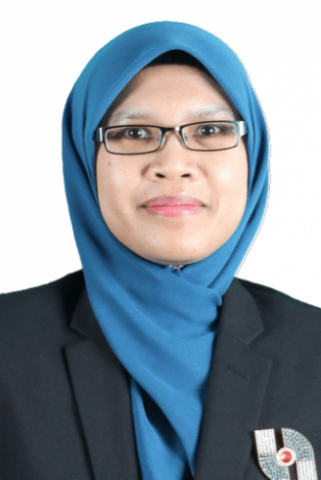Doctor of Philosophy (Management) (By Research)
(R3/345/8/0141) 05/29 (A8126) – Cyberjaya Campus
The Doctor of Philosophy (Management) is a rigorous research program aimed at developing scholars, industry experts, and thought leaders. Candidates will engage in advanced research across diverse areas, including but not limited to accounting, auditing, banking and finance, cyberpreneurship, economics, entrepreneurship, e-commerce, human resource management, international business, knowledge management, marketing, social innovation, technology and innovation management, and other emerging fields in business and management.
Students will be supported by experienced and reputable supervisors, excellent research facilities, and a vibrant research environment. The program provides opportunities to participate in international conferences, publish in reputable journals, and engage with industry and academic communities. Graduates of this program will be well-prepared for careers in academia, consulting, research institutions, and senior leadership roles in both corporate and public sectors.

ENTRY REQUIREMENTS
ENGLISH LANGUAGE REQUIREMENTS
- A minimum overall TOEFL score of 550 (paper-based) or 80 (internet-based); or
- A minimum IELTS (academic) overall band score of 6.0; or
- A credit in 1119 English Examination; or
- A minimum MUET overall band score of 4; or
- Any other qualification which is of equivalent level as determined by the Senate of the University
The English language requirement does not apply to candidates who are natives of and/or have completed any of their previous degrees from countries that use English as a first language or previous institutions that use English as the medium of instruction.
PROGRAMME STRUCTURE
- Duration of study: Minimum 2 years
- Class sessions: Weekend
Year 1
- Subject 1: Research Methodology for Social Sciences
- Supervision: Visit supervisors weekly/bi-weekly for Chapter 1-3
- PG Progress Monitoring (PPM)
- Chapter 2 Literature Review
- Chapter 1 Introduction
- Chapter 3 Research Methodology
- Proposal Defence (PD)
- Publications
Year 2
- Subject 2: Entrepreneurship & Commercialization
- Subject 3: Data Analysis Techniques for Social Sciences
- PG Progress Monitoring (PPM)
- Supervision: Visit supervisors and discuss the findings and publications
- Data Collection & Analysis
- Chapter 4 Findings: Start writing Chapter 4 and 5
- Publications
Year 3
- PG Progress Monitoring (PPM)
- Supervision
- Data Collection & Analysis
- Chapter 5 Discussion
- Draft Thesis
- Work Completion Defence (WCD)
- Publications
- Submit Thesis for Viva Voce
- Duration of study: Minimum 3 years
- Class sessions: Weekend
Year 1
- Subject 1: Research Methodology for Social Sciences
- Supervision
- PG Progress Monitoring (PPM).
- Chapter 2 Literature Review
- Chapter 1 Introduction
- Chapter 3 Research Methodology
- Proposal Defence (PD)
- Publications
Year 2
- Subject 2: Entrepreneurship & Commercialization
- Subject 3: Data Analysis Techniques for Social Sciences
- PG Progress monitoring (PPM)
- Supervision
- Data Collection & Analysis
- Chapter 4 Findings
- Publications
Year 3
- PG Progress Monitoring (PPM)
- Supervision
- Data Analysis
- Chapter 4 Findings
- Publications
Year 4
- PG Progress Monitoring (PPM)
- Supervision
- Chapter 5 Discussion
- Draft Thesis
- Work Completion Defence (WCD)
- Publications
- Submit Thesis for Viva Voce
PROGRAMME OBJECTIVES AND OUTCOMES
- PEO1 Graduates who apply advanced research and practical knowledge to provide rigorous solution to business management field
- PEO2 Graduates who display dynamic interpersonal skills in articulating novel knowledge solutions.
- PEO3 Graduates who apply digital and analytical skills in providing novel solutions for complex problems
- PEO4 Graduates who engage in lifelong learning to continously share knowledge and exhibit entrepreneurial mind-set for sustainable practices
Upon graduation, the graduates are expected to achieve or attain the following outcomes:
PLO1: Critique theories and concepts in business and management to create and interpret new knowledge.
PLO2: Develop theoretical or practical solutions to resolve complex problems in business by providing novel solutions and new practices through research.
PLO3: Demonstrate the ability to carry out specialised and original research independently and ethically to resolve complex and contemporary business issues.
PLO4: Display mastery interpersonal, communication and collaborative skills when interacting with diverse stakeholders
PLO5: Adapt a broader range of suitable digital applications and analytical techniques to conduct rigorous academic inquiry.
PLO6: Evaluate quantitative, qualitative and/or graphical data to resolve complex problems and contemporary issues in research.
PLO7: Display professionalism and responsibility in managing own research.
PLO8: Display continuous self-improvement and development with entrepreneurship mind-set in research.
PLO9: Practice legal, ethical values and professional conduct when conducting independent research.
Programme Coordinator
EXTERNAL EXAMINER
Professor Dr. Nor Azila binti Mohd Noor
Professor of Marketing
School of Business Management
Universiti Utara Malaysia

